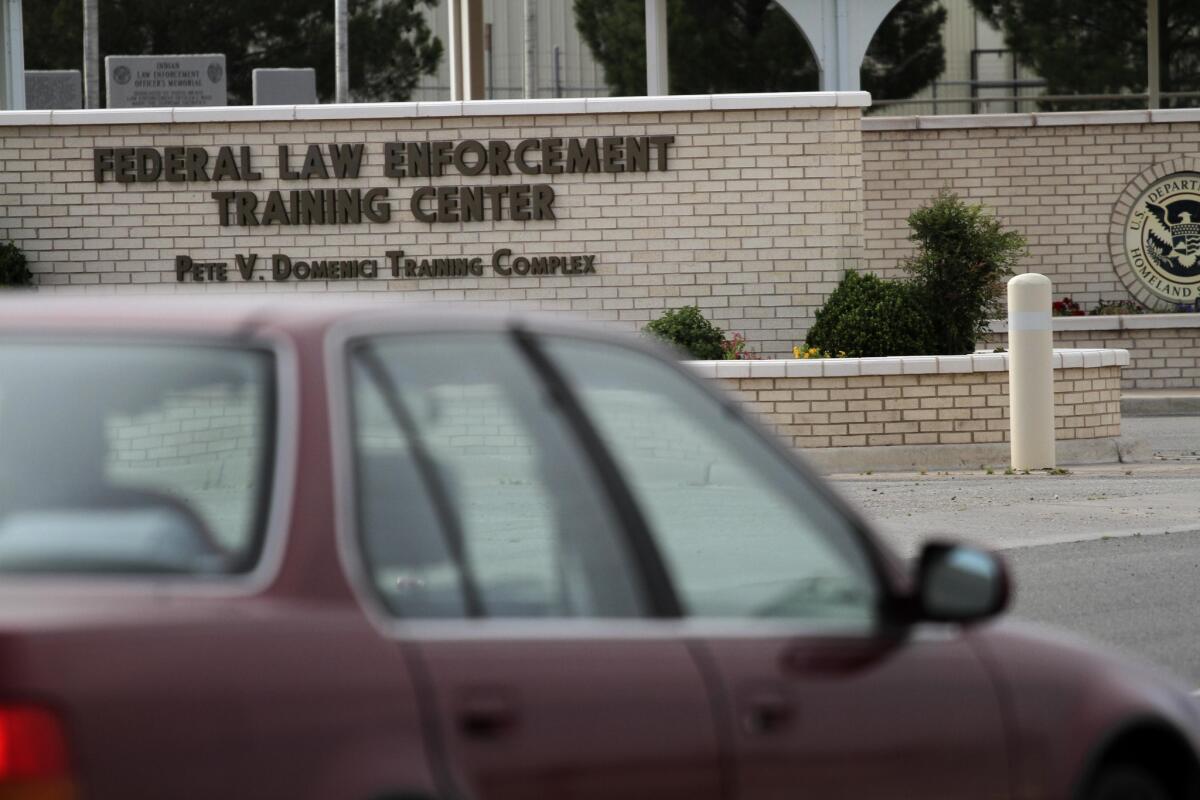Immigrant rights groups sue U.S. over fast-tracked deportations

- Share via
Reporting from Tucson — A group of Central American women and children detained at an immigration facility in New Mexico filed a lawsuit Friday against the U.S. Department of Homeland Security alleging that it was violating their right to due process as it speeds up deportations.
A contingent of attorneys and national immigrant rights groups, including the National Immigration Law Center and the American Civil Liberties Union, filed the complaint in U.S. District Court in Washington on behalf of seven women and three children held at the Artesia Family Residential Center in Artesia, N.M.
The lawsuit is the latest criticism against the Artesia facility, which has been plagued with problems including unsanitary conditions, as federal officials have stepped up the pace of processing and deporting thousands of single parents with children who have illegally entered the U.S. through its southern border. Many of the immigrants are fleeing violent communities in Central America.
The suit claims U.S. immigration officials are restricting communication between detainees in Artesia and those on the outside, including their attorneys, coercing women and children to relinquish their rights and prejudging asylum cases regardless of individual merits.
The suit seeks to stop the plaintiffs’ deportations so that they can be granted an immigration court hearing on their asylum claims, said Karen Tumlin, managing attorney with the National Immigration Law Center. In addition, attorneys are asking immigration officials to return nearly 300 women and children who have already been deported from the Artesia facility so they can seek court hearings and have access to attorneys.
“All of these women and kids are detailing stories of why they fled their countries,” Tumlin said. “Every single one of them specifically said they’d received threats to themselves or members of their family.”
Officials with the Department of Homeland Security said it is their policy not to comment on pending litigation, but that the federal government’s inter-agency response “to this unprecedented surge has been both humane and lawful.”
The women and children named in the lawsuit have expressed fear they will be targeted for violence if deported but have not been given the safeguards entitled to them, the suit claims.
A detainee who fears violence upon deportation is entitled to a hearing in which a U.S. Citizenship and Immigration Services officer decides whether the detainee has significant, credible fear of persecution or torture in their home country and therefore should not be immediately returned.
A determination of credible fear is usually easy to achieve, and the case then goes to an immigration judge who decides whether to grant asylum.
The lawsuit claims that only about half of the people who would normally be granted the chance at an asylum hearing are getting one because a higher standard for establishing credible fear has been unfairly put in place at the Artesia facility.
“These women and children are becoming pawns in a political game even though their lives are at stake. If there is one thing the United States should never sacrifice, [it] is due process and fair procedures, yet that is exactly what is happening despite the life-and-death stakes,” said Lee Gelernt, an ACLU lawyer who is one of the principal attorneys on the case.
For instance, some women in the complaint allege that they are granted more time on the phone if they clean a bathroom while others are told they can’t talk on the phone because a child misbehaved, cried or spoke too loudly in their dormitory unit.
“The deportation mill set up in Artesia violates our laws. What is going on in this facility flies in the face of our most basic human rights,” said Marielena Hincapie, executive director of the National Immigration Law Center.
The Department of Homeland Security’s inspector general report has cited problems including inadequate food, inconsistent temperatures and unsanitary conditions at Artesia and other holding facilities for women and children.
About 536 women and children remain at the Artesia facility.
In the last nine months, about 63,000 single parents with at least one child have been apprehended along the Southwest border, mainly in southern Texas. At the same time, about the same number of children traveling without a parent have been apprehended along the border. Most of the migrants are from Honduras, Guatemala and El Salvador.
Although some have tried to move farther into the U.S. after crossing the border, many have given themselves up to Border Patrol officers upon entering. A combination of factors — including escalating gang violence, poverty and rumors about potential immigration relief — has prompted more people to head north.
More to Read
Sign up for Essential California
The most important California stories and recommendations in your inbox every morning.
You may occasionally receive promotional content from the Los Angeles Times.














